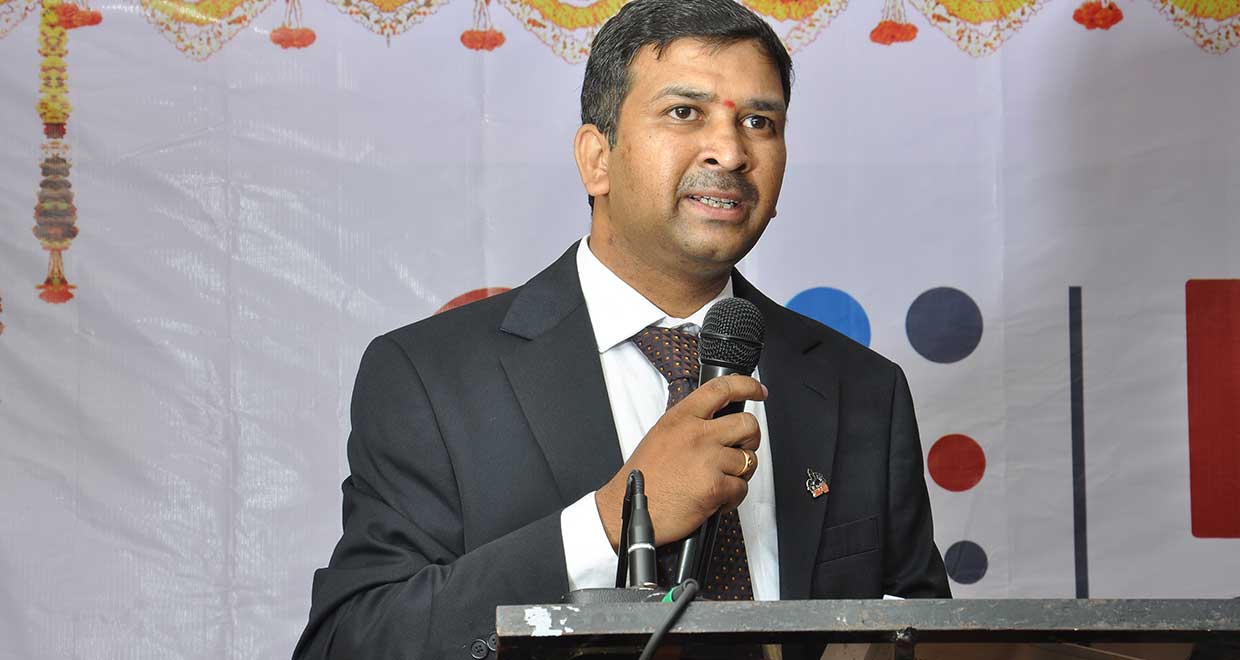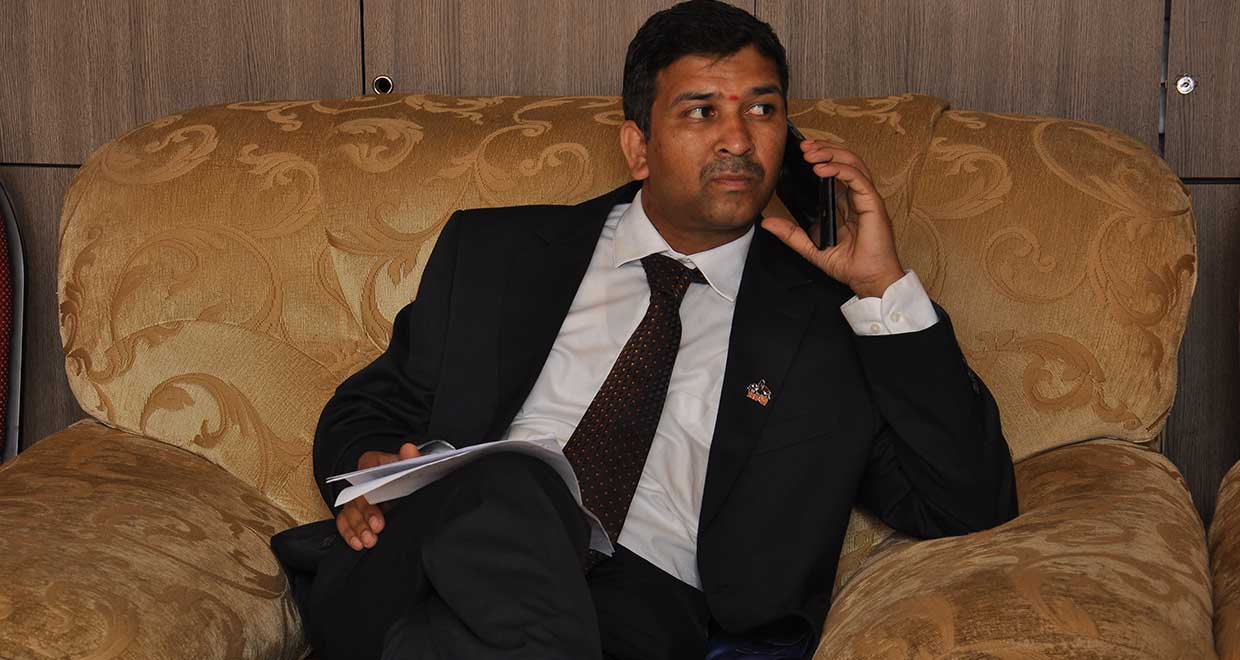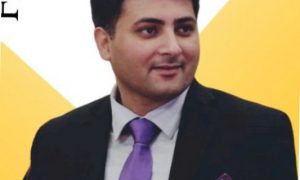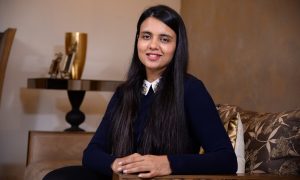Vijay Kumar Makyam graduated in law from Osmania University in 2003. He then went on to pursue his Masters in 2013, with a specialisation in Alternative Disputes Resolution. He has been a Senior Trademark Analyst at Brain League IP Services, and Guest Faculty at National Institute of Pharmaceutical Education and Research, Hyderabad. He is founding member at I-WIN IP Services and IP Markets. where he heads Patents and Trademarks. His role entails handling procedures like registration of copyrights and trademarks, filing patent application and processing in India and coordinating filing and prosecution at USPTO, European Patent office, etc.
In this interview we speak to him about:
- Being an IPR lawyer
- His teaching experience
- Plans for the future
How would you like to introduce yourself to our readers?
I would like to introduce myself as IPR Attorney; Apart from registered Patent and Trademark Agent, I am a litigating lawyer, appearing for my clients in District Courts and High Courts in various parts of the country. Yes, my education went into different streams like wind blow, I have pursued the courses as per the need of hour. Apart from the regular main stream education, I have also pursued P.G. Diploma in Intellectual Property Rights from NLSIU, Bangalore and computer skills in that I have done PG Diploma in Computer Applications, Diploma Client Server Applications, Diploma in Desk Top Publishing. Someone has rightly quoted “Education moulds the person”, my personality and career has certainly been moulded by Education. In simple words whatever I am today is because of the education I pursued. When I was studying B. Com, I was unhappy in with the fact that I am not going through a professional course and that prompted me to pursue LL.B., since I am qualified only for Law; Medicine and Engineering were not possible because of my financial conditions existing then and my parents wanted me discontinue education to support the family.
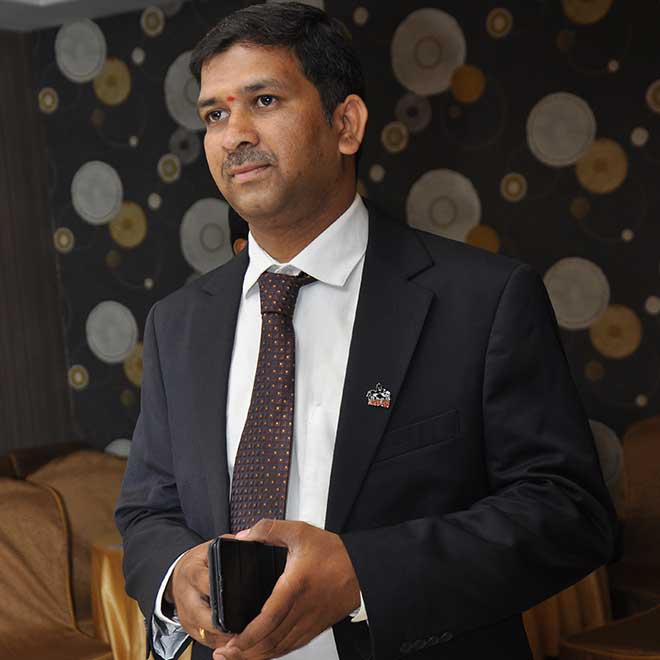
What motivated you to pursue law?
I am first generation lawyer in my family. As I earlier answered, it is only that I wanted to pursue some professional course, I pursed LL.B., as otherwise I was more interested in Computer Science and that is the reason why I did M.S. in Computer Science. Though I had a law degree, I did not want to practice law, since I believed in a myth that lawyers are liars and I would have to support false cases largely. I was also under an impression that truth followers never knock the doors of the court. Thus, I was looking for some chamber practice. Intellectual Property Rights protection was an area I felt was perfect for such chamber practice and I Registered myself initially as Trademark Agent. There was no guidance to me, since no one in our family were lawyers. So, I was guided by my law school seniors and professors in choosing this career.
Did you take part in co-curricular activities while in college?
Yes, I have attended about eight National Moot Court Competitions; all of which enhanced my research skills. We were unaware of internship programs those days and as such I have not taken up any internship. However, I believe Moot Court Competitions coupled with Internship programs can provide real time experiences to the law students.
What triggered your interest in IPR law?
I attended the 5th Raj Anand Moot National Court Competition, which introduced IPR Subject to me, which until then I was unaware about. Thereafter I attended several national seminars on IPR topics and most importantly my law school super senior who attended FPLC for his LL.M encouraged me to get into IPR.
Could you tell us about the internships you took up, and what you learnt from those experiences?
As I stated earlier, we were unaware of the internship programs during our law school days. So, I did not get an opportunity to work as an intern. However, the first firm where I worked is a start-up IPR Firm, where all the processes are established from the scratch and the team specifically is quite qualified that helped us in brain storming sessions and coming up with greater ideas for providing specialized services in IPR.
From a law student to a lawyer, how will you describe the transition?
Yes, it was huge difference. From novice to an expert lawyer. Five important things that shaped me as a good lawyer today are 1) Language 2) Vocabulary 3) Presentation 4) Dressing sense 5) Spontaneity. These five aspects I have not learned in law school, but during my practice.
Tell us about your early professional experiences at the Brain league IP Services.
Yes, Brain League gave me an opportunity to build my career as it stands today. Brain League was one of the early IPR Start-ups in India, at that point of time we had no clients interested in the services that we offered, services such as IP Audits, IP Valuation, IP Licensing, IP Monetization etc., since IPR itself was new to Indian Society at that time. So, Brain League chose IP Training as its main stream services and slowly developed various services which helped them in creating a market for their core services being IP Audits, IP Valuation, IP Licensing, IP Monetization. I played an important role in implementing Brain League’s Services as we were very small team, we had no restrictions on what work we took up. I was also involved in administration, marketing of Brain League services which helped me setting up my own firm latter.
Having worked at I-WIN IP Services for over eight years, how would you describe your work experience there?
I-WIN IP Services was started in the year 2009, we were three team members when we started I-WIN IP Services, Being the founder I had to establish all the procedures in I-WIN IP Services, my work experience at Brain League helped me a lot in doing so. I enjoyed working on Trademark Opposition proceedings, participating invention disclosure meeting with the clients and implementing Training programs.
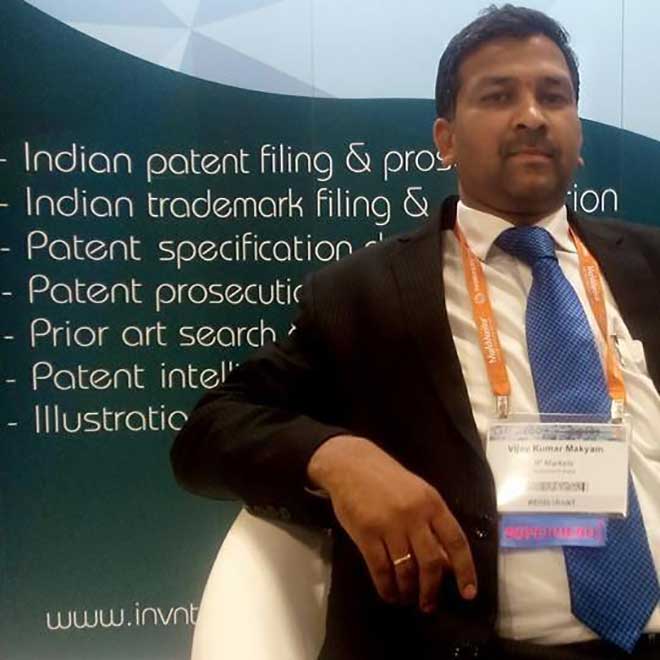
As a guest faculty at NIMSME, how do you find the Indian legal education standards?
At NIMSME, I teach international students on Indian IPR as well as entrepreneurs on effectively protecting and managing their IPRs. The difference I can point out in regular academics is that they lack practical exposure. The law Professors are not practitioners as such they will not interpret the law the way practitioner interpret for the benefit of their clients. I have seen couple of law professors updating themselves by reading law journals or taking inputs from practising lawyers; however, that will not create the knowledge for dissemination to students. Further Indian legal education need to be streamlined from text book oriented education to practical approaches. While teaching at NIMSME I provide lot of practical examples that my clients faced and overcome; this makes the audience interesting then reading a provision of law and citing an example.
What is the academic background and qualification necessary to become a patent agent in India?
Section 127 of Patent Act, 1970 prescribes any Science or Engineering degree to be qualified to take up Patent Agent Examination. This is precisely why I did M.S. in computer Science. I was into IPR Domain from long time and I was taking assistance of Registered Patent Agent for filing Patent Applications of my firm. Thus, I was determined to become a Patent Agent and pursed M.S. Computer Science before taking up Patent Agent Examination.
Given the dynamic nature of the field you practice in, how do you keep yourself updated about the latest developments in the law?
Technology helped me a lot in keeping myself updated. I browse through blogs, youtube videos and Whatsapp Groups to keep me updated with the latest updates. Seminar and Training programs that I frequently attend will help me to keep myself updating updated. Further, the cases I handle will also make me to read on particular provision of the law and brain storm on those specific topics. Finally our interns also contribute to my knowledge.
What are the causes you feel strongly about?
The knowledge and awareness on IPR is still quite low in Indian Society as well as in lower courts judiciary. There had been occasions when the lower Court Judges were not even aware of what I was arguing while handling an IPR Matter. It was left up to us to educate them initially in the subject then latter put forth the factual positions to obtain an order.
As the Senior IP Analyst at IP Markets, what does a typical working day look like for you?
I need to attend Courts every day. By 9:30 AM I shall be in office picking up the bundles necessary for the day in various courts, by 10.30 we will be in the Court Rooms, sometimes we need to await for our case to be called or else we shall advance our arguments and return to office by 2:30 PM and work on next day cases either research on a particular point of law or drafting affidavits, counters and written arguments etc., till evening 5:30 PM; post which we will have couple of client meeting till 8:30 or 9.30 PM to conclude the day.
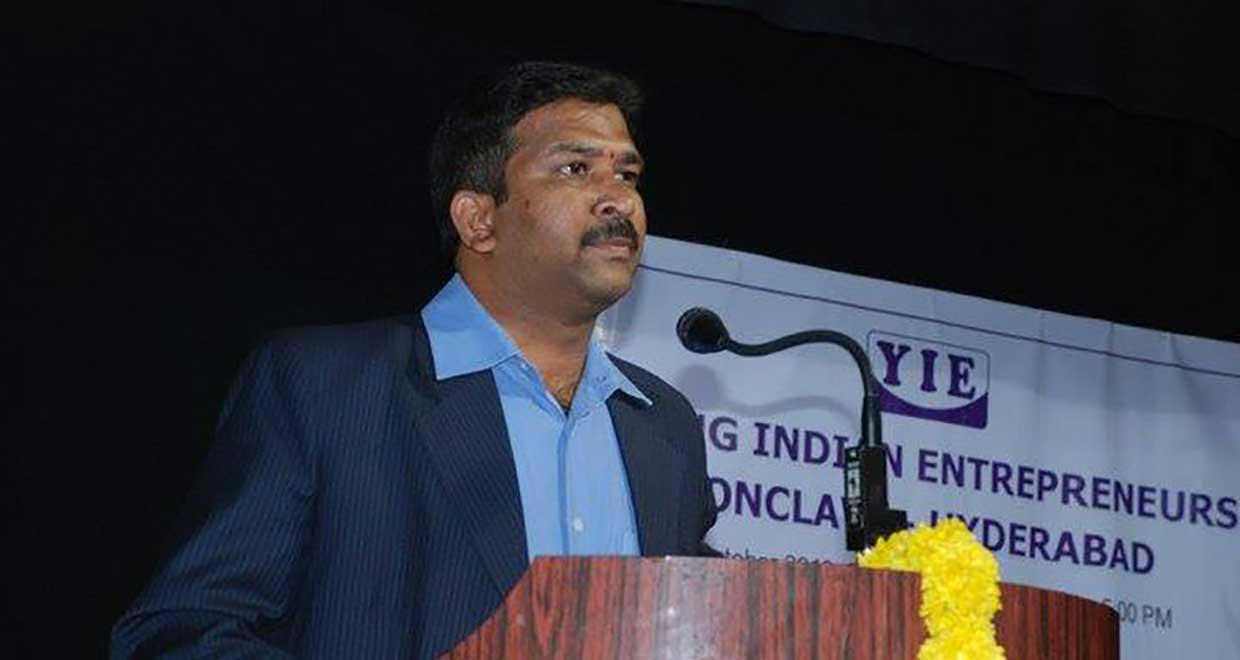
How do you feel about the present IPR regime in India?
IPR is still at a nascent stage in India; this is primarily because Indian system has not been developed to adapt to the IPR regime. Thank fully the National IPR Policy and its one of the objective to create IPR Awareness in the country and is helping India to shape its IPR Regime. To the extent of legislations, yes, we are sought of created enough legislations, however, we still need advanced law to tackle various situations prevailing in Information Technology, Biotechnology, Nanotechnology etc., that apart we are still at a novice stages in IP Licensing, Technology commercialization, IP Insurance etc., are concerned. Competition law, Standards in Patent System etc., are few concerns we are trying to address. However, still in most of the Indian industry IPR Centres are considered as cost centres than Innovation hubs. We don’t have proper mechanism where we can connect the innovation to industry in proper line; our academic research is all going in drain or exported to foreign countries. We don’t have specialized laws tackling knowledge exports. In conclusion I would say that we have just begun our journey in the IPR Regime and there is a long way to go.
On what parameters do you choose the projects you work on?
We specifically concentrate on all or any IPR issues. Thus our parameters is to choose only those projects wherein some IP issue is involved. Given the present team size we have no specific body constituted for specific work; I also believe when the team size is small every one gets to learn everything. One interesting case we handled for one of our Pharma Client where two big MNC companies fighting Patent Infringement suit in US Delware Court obtained stipulated protected orders and directed a Letter Regoratory, enforcement letter seeking confidential data of our local pharma client. The Honourable High Court appointment Commissioner and issued enforcement directions. We had to oppose enforcement of the orders because the data was confidential and it cannot be compromised even though there is a court Stipulated Protective Order. This is more so since the information and data is sought from a third party i.e., my client who was not even impleaded in the litigation at US Courts.
How do you manage your time between your professional and personal interests?
In spite of my demanding professional life, I still manage to keep my personal life unaffected and I spend time with my family and friends as and when it is needed. Social networking and Travelling are my other interests. Travelling and exploring new places excite me. My work allows me to travel different places and thus my personal interests are also satisfied with my professional Life.
Where would you like your career to take you five years down the line?
I would like to be called one of the top IP Lawyers in the country and I would like to use this position to benefit of my country in protecting its Intellectual Capitalism.
What advice would you like to give our readers, who are inclined to developing a proficiency in IP Law?
There are no short-cuts to the success, Hard work, dedication and using technology to the core are mantras to success; every case gives an opportunity to learn a new aspect; don’t judge yourself to be experts of any subject and further every day reading of the law and the case law will keep you abreast with the latest developments.

